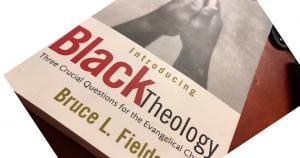 Does theological liberalism kill everything it touches pulling it into a theological captivity to secularism? Reading “Black Liberation Theology” and the impact this movement had on African-American Christianity strongly supports the idea.
Does theological liberalism kill everything it touches pulling it into a theological captivity to secularism? Reading “Black Liberation Theology” and the impact this movement had on African-American Christianity strongly supports the idea.
Was “Black Liberation Theology” able to harness the power of a still mostly Evangelical African-American church to do good (great temporal good) only to leave that church hollowed out for the future?
Historical Reminder
Nobody inherits or forms a theology, or any intellectual idea, in a void. Culture counts and can, without caution, overwhelm judgement. Timeless good can be lost in the face of temporal evil: either by accommodating to evil or being overwhelmed by it.
African-American Christianity faced slavery, Jim Crow, and white supremacy often in the name of Christianity. African Americans, however, found the intellectual, spiritual, and physical courage to make the faith their own. The earliest African American theologians were Evangelical with a high view of the Bible and a commitment to justice. Figures like Rev Dr C.O. Boothe wrote systematic theology that helped create the modern Evangelical mind. Thabiti Anyabwile traces the decline of the African-American Church to captivity to liberal theology or to other cultural ideas (such as consumerism) with the result being a loss of Biblical faithfulness.
Where did President Obama find his theology? What did it have in common with the theology of some of the leaders of the Civil Rights Movement? What good came of Black theology at what cost? Does this theological tradition have a future?
Introducing Black Theology is a very quick introduction to the books that might answer these questions. Bruce L. Fields is a good counterpoint to Professor Anthony Bradley’s more technical book making the case that African-American theology needs liberation from some bad ideas in Black Theology.
Introducing Black Theology by Professor Bruce L. Field: the Good and the Bad
Traditional Christians such as I am may jump too quickly to the problems of Black Theology and fail to see what it got right. Overwhelmingly one thing Black Theology got right was exposure and criticism of a White Theology that hid itself in both conservative and liberal seminaries.
There is no sense in criticizing any failure of Black Theology that does not see the utter failure of a conservative white church that read Thomas Dixon or a liberal white church enamoured with social Darwinism and eugenics. The American President Woodrow Wilson could even incorporate the worst of both camps into one administrion.
If Black Theology ended up captive to Marxist ideas (to cite one bad example), the white majority Protestant American church, right and left, did little to help. African-Americans had a traditional Evangelical theology only to be barred from most Evangelical seminaries. Liberal seminaries welcomed some African-American students, but too black scholars were marginalized. African-Americans founded American Pentecostalism only face segregation (again) as the movement became national.
There was much white Christian error to reject and criticize and much of the Bible and Christian tradition takes liberation from oppression as a central theme. There is a reason after all that liberation theology came to be: the state had created a legal system of oppression for African Americans that lasted through my childhood. God hates state tyranny.
Professor Cone wrote:
In Jesus’ death and resurrection, God has freed us to fight against social and political structures while not being determined by them. . . God is the sovereign ruler and nothing can thwart his will to liberate the oppressed.
Amen.
I read this several times. A traditional Christian, a political conservative such as I am, can agree whole heartedly. God save us all from being determined by political structures instead of Jesus.
Vital is understanding what is meant when a listener hears phrases like “Black Jesus” or a ‘black God.” This is not a statement about skin color or against white people. “Black” has become more that this and is about a liberation from the oppression that African-Americans have faced for centuries.
Some media use the phrases out of context to shock.
The theology of liberation may be inadequate or consider Marxism (God save!), but the problem with the movement is not reverse racism.
Really.
Don’t trust the media on any theological issue: right or left.
Black liberation theology gave impetus to leadership in the Civil Rights Movement of the 1960s. The historically Evangelical African American churches provided the troops for the intellectuals of that theological movement. Sadly, Black liberation theology also was infected with Marxist and other ideas that began to strip the Church of her power. Do not forget, however, the job that had to be done that so much of the “church” was not doing!
Fields describes a sign of the Church:
Racial and ethnic reconciliation would be a sign of believers unity in Christ and would then be a growing force to bring about harmonious relationships in the world.
This is a necessary, if not sufficient, sign of the true Church being present in our age. The Church is a servant, particularly to those under the tyranny of the world, the flesh, or the devil. What of the American experience?
Black theologians voice insensitivities, inconsistencies, and blatant hypocrisy on the part of the dominant white church perspective.
That’s God’s work.
Fields stresses that theology must be applied to life. Sadly, however, the influence of the African-American church has declined. The decline may be (in part) due to losing a focus on Jesus.
Buy Professor Fields’ introduction (Baker Academic, 2001) and keep learning!
Summary Finding
Liberal theology will always end up serving liberal secularism, even when allowed to survive. Many of the goals of black Theology were noble.
There is an obvious warning here to all religious groups: theological liberalism kills theology and leaves only secular liberalism. This should surprise nobody, since subsuming theology to any cultural agenda, right or left, takes eternal truth and uses it as a means to an end. The eternal loses its function of judging the temporal when forced to serve our short term goals. We may gain some short term advantage in power and commitment, but at the cost of losing the good, truth, and beauty long term.
Nor should Anyabwile’s history of the loss of Biblical faithfulness in the pursuit of the false materialist American “dream” be ignored. Theological liberalism is one way (perhaps the way of those disposed to intellectualism) that the Church can enter a voluntary Babylonian captivity.
Christianity cannot be twisted to the service of something else: even a good temporal agenda. The Lord Jesus insists on being Lord, not a servant to any cause. As a result, Jesus stands eternally on the side of justice of for all humankind: poor and rich. King Jesus is a citizen of any nation and Christendom is not a protectorate.
Christanity brings good fruit, but as traditional African-American theology taught only when the Time-God wills it. The city of man is a place where we must live for now and we should strive for justice now for all God’s children as a result of being present subjects of the City of God. This City must never become unreal to us, a mere image of what we strive to do in the city of man. If so, then the real is being judged by the image! Instead, we judge the city of man by the reality of the City of God which was, is, and is to come. After all, any city of man was not, is, but soon will not be. Any city men build is an imperfect image of what is recollected by men of the Heavenly City.
The eternal, the enduring, judges the temporal and temporary.
Hear Phyllis Wheatley:
On Virtue
O thou bright jewel in my aim I striveTo comprehend thee. Thine own words declareWisdom is higher than a fool can reach.I cease to wonder, and no more attemptThine height t’explore, or fathom thy profound.But, O my soul, sink not into despair,Virtue is near thee, and with gentle handWould now embrace thee, hovers o’er thine head.Fain would the heaven-born soul with her converse,Then seek, then court her for her promised bliss.Auspicious queen, thine heavenly pinions spread,And lead celestial Chastity along;Lo! now her sacred retinue descends,Arrayed in glory from the orbs above.Attend me, Virtue, thro’ my youthful years!O leave me not to the false joys of time!But guide my steps to endless life and bliss.Greatness, or Goodness, say what I shall call thee,To give an higher appellation still,Teach me a better strain, a nobler lay,O Thou, enthroned with Cherubs in the realms of day!












